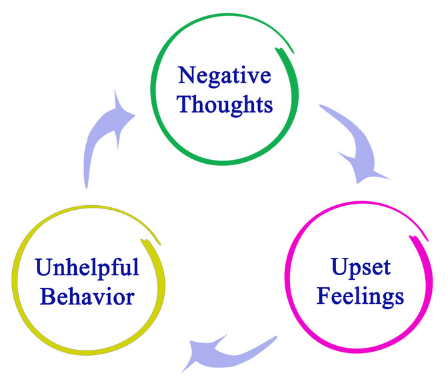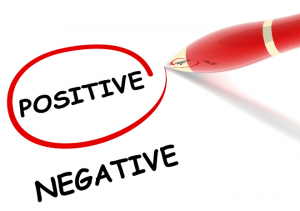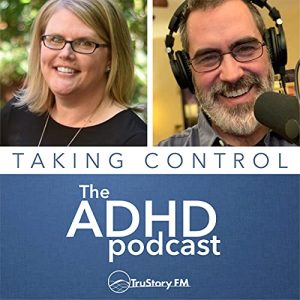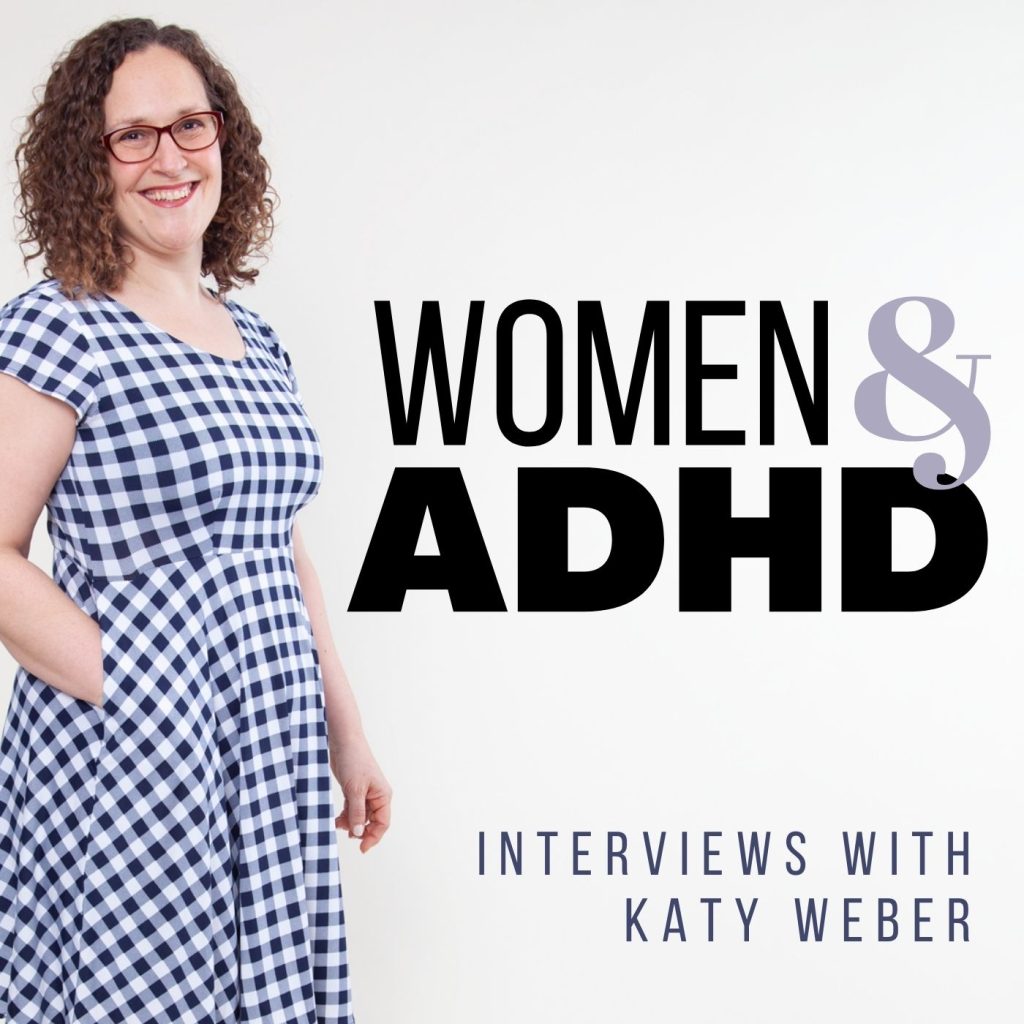“Knowing what to do next: Tips for better planning and prioritizing” by Dr. Sharon Saline Click here to read the article! 
Category: Neurodiversity
Emotional Wellness Strategies for Women with ADHD: How to reduce self-criticism & build self-confidence
 March is Women’s History Month, a time to recognize and celebrate women’s strength, accomplishments and contributions. Women carry a lot on their shoulders–from family, community, school and work responsibilities to societal expectations around physical appearance and behavior. That’s a LOT of pressure. Women with ADHD, and women who care for neurodivergent children, must deal with yet another layer of stress, anxiety and self-doubt. And all too frequently, women lack much-needed support. Moreover, women are often their harshest and loudest critics, making it all that much harder to feel good and empowered. Emotional wellness for women begins with learning to quiet that negative inner-voice and make more space for confidence and resilience.
March is Women’s History Month, a time to recognize and celebrate women’s strength, accomplishments and contributions. Women carry a lot on their shoulders–from family, community, school and work responsibilities to societal expectations around physical appearance and behavior. That’s a LOT of pressure. Women with ADHD, and women who care for neurodivergent children, must deal with yet another layer of stress, anxiety and self-doubt. And all too frequently, women lack much-needed support. Moreover, women are often their harshest and loudest critics, making it all that much harder to feel good and empowered. Emotional wellness for women begins with learning to quiet that negative inner-voice and make more space for confidence and resilience.
The critical feedback loop in women with ADHD
 All too often, women with ADHD find themselves in a cycle of negativity. This self-critical feedback loop is hard to shake because the negative messages come from within. Women are often socialized to please others and take care of them–emotionally, physically and psychologically. Their self-worth is often feels tied to what people think about them and how many friends (real or virtual) they have instead of the uniqueness of their innate talents and personal traits. Women with ADHD, already sensitive to feedback or rejection, often interpret things more negatively and personally than the situation calls for. They are especially vulnerable to internalized low self-worth.
All too often, women with ADHD find themselves in a cycle of negativity. This self-critical feedback loop is hard to shake because the negative messages come from within. Women are often socialized to please others and take care of them–emotionally, physically and psychologically. Their self-worth is often feels tied to what people think about them and how many friends (real or virtual) they have instead of the uniqueness of their innate talents and personal traits. Women with ADHD, already sensitive to feedback or rejection, often interpret things more negatively and personally than the situation calls for. They are especially vulnerable to internalized low self-worth.
Change your relationship with the negative voice
 While it’s unrealistic to completely eliminate negative thinking altogether, you can learn to reduce the power it holds. This is crucial for fostering self esteem and resilience–two key issues for women. In order to reduce its power, you have to change your relationship to the negative voice. Point out that there is a difference between real life and the stories that you tell yourself about those events. These interpretations directly influence the way someone takes meaning from whatever occurred. Putting negativity outside of yourself reduces feeling wrong or bad. It also helps you acknowledge the critical feedback loops in your mind without being ruled by them.
While it’s unrealistic to completely eliminate negative thinking altogether, you can learn to reduce the power it holds. This is crucial for fostering self esteem and resilience–two key issues for women. In order to reduce its power, you have to change your relationship to the negative voice. Point out that there is a difference between real life and the stories that you tell yourself about those events. These interpretations directly influence the way someone takes meaning from whatever occurred. Putting negativity outside of yourself reduces feeling wrong or bad. It also helps you acknowledge the critical feedback loops in your mind without being ruled by them.
Make space for confidence and resilience with a positive mindset
The most powerful tool women have to counter negative thinking is self-esteem. Confidence empowers you to make decisions, get through life’s ups and downs and recover after setbacks. So while you’re quieting your inner-critic, turn up the volume on the voice that nurtures you with kindness and support.
1. Identify limiting core beliefs and negative self-talk
 Find evidence that contradicts or supports those beliefs. Remember that no one is judging you as harshly as you judge yourself. Talk to people in your life who love and know you best, and get their perspective on all your best qualities. Consider asking them:
Find evidence that contradicts or supports those beliefs. Remember that no one is judging you as harshly as you judge yourself. Talk to people in your life who love and know you best, and get their perspective on all your best qualities. Consider asking them:
- “Which of my qualities are most meaningful to you?”
- “What do you consider to be my greatest talents?”
2. Separate feelings from being
Feeling bad doesn’t mean you are ‘less than’ or unworthy. It may be tough, but don’t allow these negative feelings to define who you are. Use self-affirming phrases such as:
- “Mistakes are how people learn, and you’re learning.”
- “Being wrong doesn’t mean you’re a bad person.”
3. Create a few helpful phrases to say to yourself
Positive self-talk counter-acts that negative voice so you don’t have to believe it. Build confidence and quiet your inner critic with reminders of your strengths. Sample statements might be:
- “Everyone makes mistakes, including me. What can I do differently next time?”
- “There’s no such thing as perfection. It’s okay to stumble, just keep trying.”
4. Use a growth mindset approach
 Shift away from trying to prove your worth to others using false comparisons or judging yourself as ‘less than.’ Transition from seeing yourself in a negative light to practicing compassion and kindness toward yourself. This involves taking time for some self-reflection. We are all works in progress, learning and developing at our own speeds. Believe in the power of “YET.” Tell yourself:
Shift away from trying to prove your worth to others using false comparisons or judging yourself as ‘less than.’ Transition from seeing yourself in a negative light to practicing compassion and kindness toward yourself. This involves taking time for some self-reflection. We are all works in progress, learning and developing at our own speeds. Believe in the power of “YET.” Tell yourself:
- “I may not be able to do this YET, but I am learning.”
- “I might not feel ready YET, but that could change soon.”
5. Practice healing meditations
Picture yourself in your “happy place.” Visualize the face of someone whom you love and trust. What supportive words would this person say to you? How would these words comfort and encourage you? Write these down, and meditate on these images and words whenever you need to heal or empower yourself. If you’ve been stuck in a pattern of knocking yourself down, learning to pull yourself back up takes A LOT of practice. Learning to control the volume on that negative voice is a life skill that sustains crucial resiliency and self-esteem. It’s one step at a time so stay patient and persistent!
Read more blog posts:
- Moms with ADHD: Nurturing your power of authenticity
- Reducing Regret as an ADHD Adult with the 4R’s
- Couples Living with ADHD: Healthy practices that focus less on fairness and more on companionship
Watch on Dr. Sharon Saline’s YouTube Channel:
- Moms with ADHD: Why YOU Are the Best Mother for Your Child | Parenting Q&A
- Re-Entry Anxiety in Adults with ADHD | ADHD Q&A
- How Do I Support My Daughter with ADHD? | ADHD and Girls Q&A
Handouts, Videos & More in Dr. Saline’s Store: https://drsharonsaline.com/product/harness-grit/ https://drsharonsaline.com/product/shame/
Reducing Regret as an ADHD Adult with the 4R’s
 Do you live with regrets? Regrets for things that you’ve done or things that you wish you had tried? If so, you are in good company. Many adults with ADHD carry around feelings of sadness, remorse or disappointment over something that happened in their lives or something that they did. This regret often acts as a form of self-sabotage: it’s a way to put yourself down that prevents you from living more fully in the present. Since you can’t go back, what’s called for is learning how to accept your actions, forgive yourself for the mistakes you made and pursue opportunities or interests in new ways. In essence, pivot and focus on changing what you can and you’ll start reducing regret and improving resilience.
Do you live with regrets? Regrets for things that you’ve done or things that you wish you had tried? If so, you are in good company. Many adults with ADHD carry around feelings of sadness, remorse or disappointment over something that happened in their lives or something that they did. This regret often acts as a form of self-sabotage: it’s a way to put yourself down that prevents you from living more fully in the present. Since you can’t go back, what’s called for is learning how to accept your actions, forgive yourself for the mistakes you made and pursue opportunities or interests in new ways. In essence, pivot and focus on changing what you can and you’ll start reducing regret and improving resilience.
Enduring the many challenges that come with ADHD
When you have ADHD, weaker executive functioning skills frequently show up in daily struggles with verbal or behavioral impulse control, emotional regulation, organization, planning, time management and setting and completing goals. When you wrestle with these challenges over time, it can seem impossible to break old habits and create newer effective ones. To make matters more complicated, you may also criticize yourself for times when you yelled inappropriately, showed up late to an important meeting, missed a friend’s birthday or made a joke that fell flat. Perhaps you’ve engaged in knee-jerk reactions that you wish you hadn’t and lost work or meaningful relationships as a result. Shame and blame quickly set in and band together to lower your self-esteem and your confidence. Now you are living with intense, negative self-talk that seems impossible to change.
Reducing regret with the 4R’s
 As adults, though, you can change your behavior by mindfully adopting new skills that create new neural pathways to offer you choices instead of reflexively reacting. Over the years, you, like many others, probably learned to hide your vulnerability underneath defensiveness and anger. What you need are new tools to tolerate your big emotions, manage hurt and disappointment and stop being your own worst enemy It’s not easy, but it is possible to stop “horribilizing” the events in your life and your own actions and start “efforting:” taking incremental, small steps toward doing more of what works. Focusing on the 4R’s can help you reduce regret, nurture resilience and rebuild self-compassion.
As adults, though, you can change your behavior by mindfully adopting new skills that create new neural pathways to offer you choices instead of reflexively reacting. Over the years, you, like many others, probably learned to hide your vulnerability underneath defensiveness and anger. What you need are new tools to tolerate your big emotions, manage hurt and disappointment and stop being your own worst enemy It’s not easy, but it is possible to stop “horribilizing” the events in your life and your own actions and start “efforting:” taking incremental, small steps toward doing more of what works. Focusing on the 4R’s can help you reduce regret, nurture resilience and rebuild self-compassion.
The 4R’s for reducing regret:
1. Radical awareness:
Look at thwarted dreams or disappointing actions and name them. Track when, where and how pessimistic or antagonistic thoughts arise.
2. Recognize:
Identify what was going on in your life at that time. Consider environmental, psychological, social, school, work or family factors.
3. Repair:
Ask yourself what it might take to restore a relationship or situation. How can you make amends, listen to feedback with more interest and neutrality and be (more) accountable?
4. Reconfigure:
Based on comments from others and your own assessment of yourself, reflect on how you can alter reactions or behaviors that hold you back from creating satisfying connections or achieving personal goals. Work on shifting just one thing: something you’ve adopted over time that gets in your way or hurts others. This can be intentional or not. Don’t try to change your whole personality: that’s neither realistic nor achievable. Instead, keep it small and doable.
Reshaping regret takes time, practice and forgiveness
 Regret is a very powerful pattern to reshape. Changing it takes time and practice. Taking responsibility for your part with honesty and humility reduces shame and blame and leads to personal empowerment. It can be tough to be honest with yourself without judgment or to share your feelings and be vulnerable. That’s natural. Take it slow, and start with small things. Notice and validate your efforts by writing down at least one way that you responded differently each day–what went well. Focus on nurturing compassion for yourself, and start the progress of forgiveness–for yourself and towards others. Remember, we all do things we wish we hadn’t when we lack the personal or socioeconomic resources to make different choices in a given moment. Now you are shifting to new patterns of creating healthier coping strategies and living without less regret.
Regret is a very powerful pattern to reshape. Changing it takes time and practice. Taking responsibility for your part with honesty and humility reduces shame and blame and leads to personal empowerment. It can be tough to be honest with yourself without judgment or to share your feelings and be vulnerable. That’s natural. Take it slow, and start with small things. Notice and validate your efforts by writing down at least one way that you responded differently each day–what went well. Focus on nurturing compassion for yourself, and start the progress of forgiveness–for yourself and towards others. Remember, we all do things we wish we hadn’t when we lack the personal or socioeconomic resources to make different choices in a given moment. Now you are shifting to new patterns of creating healthier coping strategies and living without less regret.
Read more blog posts:
- Taming Emotional Triggers with an ADHD Brain: How to understand big feelings and respond differently
- ADHD and Self-Sabotage: 6 supportive strategies to help you feel more confident and reach more goals
- Family, Forgiveness and ADHD: Loving and letting go, during and beyond the holiday season
Watch on Dr. Sharon Saline’s YouTube Channel: https://youtu.be/AZGrbNjUGlo Handouts, Videos & More in Dr. Saline’s Store: https://drsharonsaline.com/product/shame/ https://drsharonsaline.com/product/whats-up-with-all-this-anger/
Psychology Today – Hyperfocus and ADHD: Productivity Superpower or Kryptonite?
New Psychology Today Article by Dr. Sharon Saline
Four strategies for understanding and managing hyperfocus successfully.
“Are you ever so engrossed in an activity that time seems to stop and nothing can tear you away? Does it ever seem like you lose a sense of where you are and what’s happening around you? This can be the experience of hyperfocus for many people with ADHD. Hyperfocus is defined as “a phenomenon that reflects one’s complete absorption in a task, to a point where a person appears to completely ignore or ‘tune out’ everything else.” Read the full article by Dr. Saline!
Women & ADHD Podcast: How do we know if it’s ADHD?
The ADHD & Women Podcast features Dr. Sharon Saline
“Dr. Saline and I talk about how her interest in ADHD as a psychologist was sparked by her own neurodivergent family. We also talk about inattentive type ADHD in childhood and why so many kids — both boys and girls — with inattentive ADHD end up overlooked and ultimately diagnosed with depression and anxiety instead of ADHD. We also talk about the adult diagnosis experience and the best ways for you and your doctor to determine whether you have ADHD as opposed to possibly another situational struggle.”
PsychCentral: How Does ADHD Affect Your Time Perception?
Intrepid Ed News: Let’s get started! 5 tips for helping kids get things done
ADHD and Self-Sabotage: 6 supportive strategies to help you feel more confident and reach more goals
 Self-sabotage is the negative self-talk that prevents us from believing we can do things. It can be conscious or unconscious and can keep us from setting, working towards and reaching our goals. It holds us back from doing what we want to do. Low self-esteem and unfounded beliefs about being deficient, not good enough, incapable or unintelligent contribute to self-sabotage. These deep-seated, limiting core beliefs fuel fears about performance and result in procrastination or avoidance. If left unchecked, this can lead to general anxiety, social anxiety and depression. That’s why it’s so important to counter negativity with encouragement, support and self-love.
Self-sabotage is the negative self-talk that prevents us from believing we can do things. It can be conscious or unconscious and can keep us from setting, working towards and reaching our goals. It holds us back from doing what we want to do. Low self-esteem and unfounded beliefs about being deficient, not good enough, incapable or unintelligent contribute to self-sabotage. These deep-seated, limiting core beliefs fuel fears about performance and result in procrastination or avoidance. If left unchecked, this can lead to general anxiety, social anxiety and depression. That’s why it’s so important to counter negativity with encouragement, support and self-love.
Self-Sabotage and ADHD
 Feelings of shame and self-doubt often surface early on for those with ADHD. The shame about not being able to succeed at school or handle tasks as well as others starts early in life and continues into adulthood. Children with ADHD feel “different” from their peers, which may fill them with increasing feelings of nervousness, doubt and uneasiness. Over time, personal vigilance grows into anxiety about messing up and not measuring up. Embarrassment and shame lead to a desire to avoid that insecurity and pain at all costs. Attempts to avoid pain or embarrassment often manifest as self-sabotaging behaviors.
Feelings of shame and self-doubt often surface early on for those with ADHD. The shame about not being able to succeed at school or handle tasks as well as others starts early in life and continues into adulthood. Children with ADHD feel “different” from their peers, which may fill them with increasing feelings of nervousness, doubt and uneasiness. Over time, personal vigilance grows into anxiety about messing up and not measuring up. Embarrassment and shame lead to a desire to avoid that insecurity and pain at all costs. Attempts to avoid pain or embarrassment often manifest as self-sabotaging behaviors.
Signs of Self-Sabotage
There are a number of behaviors and modes of thought which are indicative of self-sabotage. Take a little time to self-reflect and determine whether you are negatively affected by the self-sabotaging indicators below:
- Avoidance: Staying away from people or situations that cause discomfort
- Procrastination: Putting off getting things done because of a fear of failure
- Fixed mindset: Believing that you can’t change and your abilities will not improve; blaming and shaming yourself for mistakes you may have made
- Exercising control over others: Attempting to control others’ behaviors or situations that seem uncertain and provoke your anxiety

- Pleasing others at your own expense: Making choices to be accepted or liked by people, even if they go against your values or better judgments; depending on others for validation and approval
- Engaging in risky behaviors: Harming yourself through substance abuse, gambling, sexual promiscuity, cutting, eating disorders, etc.
- Using “Compare and Despair” to your own detriment: Looking at what others do, and comparing yourself negatively to them
- Perfectionism: Trying to control outcomes as a way to manage anxiety; “letting perfect be the enemy of good enough”; needlessly getting caught up in the weeds or building obstacles where they don’t need to be; looking for the one perfect solution instead of taking steps forward, even if not under ideal conditions
Tools to Address Self-Sabotage
Even though it may seem like self-sabotage is a lot to deal with, it is possible to manage and even overcome self-sabotaging tendencies. Some approaches, like Cognitive Behavioral Therapy (CBT), are longer term treatments. But there are several tools and mindful awareness exercises you can practice any time to help manage self-sabotaging thinking day-to-day.
1. Establish healthier alternatives to limiting beliefs, negative self-talk and safety-seeking behaviors
Practice mindfulness by focusing on being present and aware of your thoughts instead of letting preoccupation and worries what other people think about you distract you. Pay attention to what’s happening around you in the present moment instead of noise in your head. 
Sometimes we find ourselves being pulled into a cycle of negativity, worry, predicted failure or harsh self-judgment. In these cases, reverse course by slowing down and identifying any negative beliefs. Recall positive outcomes that have occurred before, and remind yourself that they are possible again. Encourage yourself to power through.
“If I get stuck, I sometimes do better if I can commit to starting and working on a task for 15 minutes. It is good to negotiate with yourself, and build in rewards for following through.”
2. Identify phrases of self-sabotage, and create rebuttals
When your “negative brain” tells you, “You’re not good enough, why bother?” train your “positive brain” to answer, “Don’t underestimate yourself–give it a try and see what happens!” Create your own list of encouraging phrases to use when you want to cut the negative self-talk short. Remember, you are not your thoughts, but you are the one who is aware of them. You can choose not to believe them or push them back with the power of positive thinking. This takes work and a lot of practice, so expect yourself to stumble and have setbacks. Forget about “compare and despair,” and looking sideways at what others are doing. Instead, look at where you’ve come from and where you want to go. “When my brain is working against me, I find ways to increase dopamine or just rest if that is really what I need and eliminate the perceived judgment of other people.”
3. Set small behavioral goals that are low risk experiments to build confidence
 These are learning experiences that test/defy those negative self-beliefs. Take a measured risk based on previous successes. For example, if you are anxious about attending a social gathering, set a small goal for yourself, such as “I’m going to smile at new people.” Once you’re comfortable with smiling, take it up a notch with a goal such as “I’m going to talk to 1-2 people standing alone” or “I will focus on the conversation in the moment and make a reflective or topic-related comment.” Afterwards, assess how the situation went and how you felt. Did you have conversations that may have been awkward but weren’t damaged by them? Write a journal entry or voice memo about your experience and what you learned from it.
These are learning experiences that test/defy those negative self-beliefs. Take a measured risk based on previous successes. For example, if you are anxious about attending a social gathering, set a small goal for yourself, such as “I’m going to smile at new people.” Once you’re comfortable with smiling, take it up a notch with a goal such as “I’m going to talk to 1-2 people standing alone” or “I will focus on the conversation in the moment and make a reflective or topic-related comment.” Afterwards, assess how the situation went and how you felt. Did you have conversations that may have been awkward but weren’t damaged by them? Write a journal entry or voice memo about your experience and what you learned from it.
4. Adjust expectations to include the natural stumbles of being human; separate your ADHD brain from your character
Because of your ADHD, your thoughts may have a tendency to run away from you, making them harder to get back and control. Train your attention to move away from negativity and internal noise. We can’t turn off these thoughts entirely, but we can lower the volume on them and see them as background noise. You’re only human, so you will make mistakes and feel awkward time-to-time. Your ADHD brain may make things tougher to manage, but you are still a good, worthy and capable person who has a lot to offer. “ADHD doesn’t make me less of a person or less valid. It makes me a different sort of person who is still valid and valuable.”
5. Use a growth mindset approach
 Shift away from trying to prove your worth to others using false comparisons or judging yourself as less than. Transition from seeing yourself in a negative light to practicing compassion and kindness toward yourself. We are all works in progress, learning and developing at our own speeds. Believe in the power of “YET.” Tell yourself, “I may not be able to do this YET, but I am learning.” Practice kindness and patience towards yourself.
Shift away from trying to prove your worth to others using false comparisons or judging yourself as less than. Transition from seeing yourself in a negative light to practicing compassion and kindness toward yourself. We are all works in progress, learning and developing at our own speeds. Believe in the power of “YET.” Tell yourself, “I may not be able to do this YET, but I am learning.” Practice kindness and patience towards yourself.
6. Healing meditation
Picture yourself at a beautiful spot outside. Visualize the face of someone you really love. What encouraging words would this person say to you? How would these words comfort and encourage you? Write these down, and meditate on these images and words whenever you need to heal or empower yourself. Living with ADHD means experiencing moments when you’re aware that you are struggling or have messed up, but you don’t necessarily know why or how to fix it. This can develop into persistent worry and self-sabotage, and this anxiety can overpower us. Focus on building up your reserve of positive experiences, and, in turn, you’ll begin to minimize those pesky negative thoughts. A combination of CBT and mindful awareness practices can help. And, if we go back to basics, self-care is a powerful antidote to self-sabotage. So remember, be kind and loving toward yourself today and every day.
Read more blog posts:
- Perfectionism and ADHD: Why ‘good enough’ is better than perfect
- Productive Procrastination and ADHD: How to stop running in place and start tackling your goals
- New Year, New Habits, Same ADHD: How to plan for and maintain new habits together, as a family
Watch on Dr. Saline’s YouTube Channel: Stop the Self-Sabotage: How to Support Yourself with Love https://youtu.be/nphiSl0ka30 Deeper Dive – Dr. Saline’s Store: https://drsharonsaline.com/product/harness-grit/ https://drsharonsaline.com/product/anxiety/
Taking Control, The ADHD Podcast: Call Out Your Stinking Thinking! ADHD & Self-Compassion with Dr. Sharon Saline
Dr. Sharon Saline joins Nikki Kinzer and Pete Wright on Taking Control: The ADHD Podcast!
 “We’d never heard of the phrase stinking thinking until Sharon Saline used it with us on the show this week. But we knew what it meant immediately. We live with it. It’s the thinking we use about ourselves when we’re compromised or when our reserves of resiliency have been tapped, and when what we need more than anything else is just a little bit of self-compassion. But as ADHDers, finding self-compassion isn’t always natural. We have to make a practice of it, integrating the language and behaviors of compassion into our days and hours such that when we need it, it’s not so hard to find…” Listen to the episode below, or click here to listen at TakeControlADHD.com.
“We’d never heard of the phrase stinking thinking until Sharon Saline used it with us on the show this week. But we knew what it meant immediately. We live with it. It’s the thinking we use about ourselves when we’re compromised or when our reserves of resiliency have been tapped, and when what we need more than anything else is just a little bit of self-compassion. But as ADHDers, finding self-compassion isn’t always natural. We have to make a practice of it, integrating the language and behaviors of compassion into our days and hours such that when we need it, it’s not so hard to find…” Listen to the episode below, or click here to listen at TakeControlADHD.com.
Psychology Today: ADHD and Self-Awareness
How to improve metacognition and nurture resilience.
“Do you ever struggle with evaluating how you are doing in real-time and pivoting appropriately? Metacognition, also known as self-awareness, is a key executive functioning skill that coalesces in the late twenties for people with ADHD. It refers to processes related to understanding your thinking and thought processes to improve learning and performance. It’s a way to think about your thinking.” Read the full article by Dr. Saline!



